Members
RES-Lab students, scholars, and affiliates
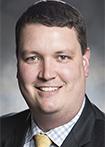
Dr. Justin Baker (CV) — Hello! Welcome to the Baker RES Lab website. My name is Justin Baker and I am an Associate Professor in the Dept. of Forestry and Environmental Resources at NC State University. Before joining the faculty at NCSU, I spent almost a decade at the research institution RTI International, with stops at Duke University as well. I completed my graduate studies in Agricultural and Applied Economics at Texas Tech and Texas A&M Universities.
Research in the RES Lab covers a wide range of topics, including forestry and land use modeling, integrated water resource management and hydro-economics, climate change mitigation and adaptation policy analysis, interactions between trade policy and the environment, and energy policy. I am the Director of the Southern Forest Resource Assessment Consortium (SOFAC), which supports research and market modeling efforts in the southern U.S. forest sector. I collaborate holds a guest researcher affiliation with the International Institute for Applied Systems Analysis (IIASA), is a faculty affiliate with the Center for Environmental and Resource Economic Policy (CEnREP) and Duke University’s Energy Access Project (EAP), and maintains collaborations with various government stakeholders, NGOs, and academic institutions.
Growing up in Lubbock, Texas, I became interested in natural resource management and sustainability issues early on in my career. West Texas is an agriculture- and energy-dependent regional economy, and like a lot of semi-arid environments, the region faces water scarcity concerns that will be amplified by climate change in the coming decades. Addressing resource scarcity, or natural resource management challenges broadly, requires analysis of tradeoffs and (often) a long-term perspective. Economics and dynamic modeling of integrated socio-environmental systems offers a path for quantifying tradeoffs of policy or management alternatives, and for identifying solutions that are resilient to global change.
I’m passionate about higher education and helping the next generation of scientists and resource managers develop the skills they need to thrive in an increasingly complex world. Here is an intro to some of the amazing students and scholars in the RES Lab that are actively working to address some of the world’s most pressing environmental challenges through research and engagement:
Research Scholars
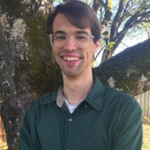
Dr. David Rossi is a Research Scholar for the Southern Forest Resource Assessment Consortium (SOFAC) at North Carolina State University. David specializes in forest resource economics and finance. His research has specifically focused on the public finance of forest fire management, and on the relationship between forest carbon offset markets and industrial timber markets. David is also involved in the continued development and application of the Sub-Regional Timber Supply model and empirical methods applied to forest economics and markets in the southern U.S.
Dr. Arpita Nehra is a Postdoctoral Researcher in the Department of Forestry and Environmental Resources at North Carolina State University. She is supporting a project to understand and quantify the linkages between water quality, land use change, and water treatment costs. Dr. Nehra is primarily a natural resource economist interested in using economic theory and modeling to facilitate policies revolving around natural resources and land use. Her research has centered around the application of econometric and general equilibrium tools to water economics, specifically, urban water and water trade in the Western US and India. Her doctoral dissertation studied the impacts of Owens Valley water transfer in the 1900s on Los Angeles’ economic growth and apply a cost-benefit type analysis for a water-sharing project in Utah.
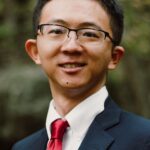
Dr. Ziqian Gong is a Postdoctoral Researcher in Justin Baker’s group in the Department of Forestry and Environmental Resources at North Carolina State University. He earned his Ph.D. in Applied Economics from The Ohio State University in 2022. His research focuses on environmental and resource economics, climate change, food-energy-water nexus, computable general equilibrium (CGE) model, and decision-making under uncertainty. His previous research includes building a CGE model to analyze environmental sustainability and individual well-being resulting from shifts in the Great Lakes area’s complex economic and environmental systems.
Graduate Students

Gaurav Dhungel is a second-year doctoral student in the College of Natural Resources at North Carolina State University. He is majoring in Forestry and Environmental Resources with minor in Economics. He has an M.S. degree in Forestry and Natural Resources from University of Kentucky, where he led a project on long-term supply of white oak and its associated economic impacts in Kentucky. Currently, he is involved in the development and application of Sub-Regional Timber Supply model in the Central Hardwoods region of the US. He intends to use his economic modeling and FIA database skills to build on his research interests in carbon quantification, valuation, and the impact of changing climate on future forest dynamics.
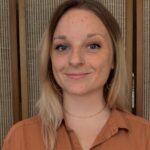
Madisen Fuller is a second-year student studying Forestry and Economics at NC State. Her current research focus is on forestry carbon modeling, which she also studied for her MS at University of Georgia. She hopes to use her econometric and modeling skills in the future to study policy related to global economic, racial, gender, and environmental equity.

Olakunle Sodiya is a Forestry and Environmental Resources Ph.D. student. He received a B.S. degree in Forestry and Wildlife Management with a focus on Forest Biometrics from the Federal University of Agriculture Abeokuta, Nigeria. He studied Resource Economics and Management at West Virginia University and later joined NC State University where he received an M.S. degree in Forestry and Environmental Resources with a focus on supply chain assessment, market dynamics, resource availability, and geospatial analysis. Ola’s work focuses on understanding how global climate change and climate-oriented policy changes could impact forest product market, forest resources utilization, investment, and market outcomes in the US. Ola is currently a Global Change Fellow with the Southeast Climate Adaptation Sciences Center (SECASC). His research will combine spatial and data analytics, forest management, and modeling to address emerging environmental challenges in the US.

Shiyue Yao is a third-year doctoral student in Applied Economics at NC State University. Shiyue’s research interests include environmental and resource economics, climate economics, and applied econometrics. Her recent research covers environmental policy impact evaluation, and integrated assessment modeling in climate change mitigation and adaptation.
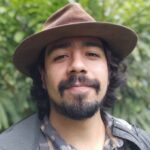
Iván Raigosa-García is a Ph.D. student in Forestry and Environmental Resources. I earned my undergrad degree in Forestry Engineering from the National University of Colombia, I also hold a master’s degree in Forest Science from UF. My research is about precision silviculture in the southern US. We use soil data, LiDAR, historical growth, and yield data to model loblolly pine growth and response to different fertilization scenarios. I am also interested in the economic analysis focused on fertilizer application return on investment.

Nathan Schunk is a first-year PhD student in the forestry and environmental resources program at North Carolina State University. He is a global change fellow with the Southeast Climate Adaptation Science Center (SECASC) and a Science and Technology for Phosphorus Sustainability (STEPS) scholar. His research includes natural hazards effects on socioeconomic and ecological factors in coastal regions, soil nutrient composition after hurricanes, ghost forest expansion, and systems dynamics modeling.

Josephine Geraghty graduated from Furman University in May 2023 with a Bachelor of Science in sustainability science and joined the RES lab in the Fall. She is currently a STEPS Scholar working on communication and public outreach efforts in the Center. Her research draws from shared socioeconomic pathway literature to develop phosphorus sustainability narratives.
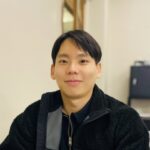
Chanheung Cho is a Ph.D. student in the Department of Economics at North Carolina State University. His research primarily centers on the application of dynamic optimization methods to address environmental and resource management problems, with a particular focus on structural and observational uncertainties. He is also a STEPS Scholar and CEnREP graduate student affiliate.
Former Graduate Students and Lab Affiliates

Thu Ho completed her MS student in Forestry in 2023. She is from Ho Chi Minh City, Vietnam and completed her bachelor’s degree in Economics and Environmental Studies at Augustana College, Illinois. Her research interests involve coupled natural-human systems and developing economic models to help identify policy interventions that are resilient to socio-economic and environmental changes. She was a member of the inaugural graduate student cohort for the STEPS Center. Her MS evaluated drivers of fertilizer price volatility, developed future price volatility projections, and applied complex network analysis to study the evolution of phosphorus and nitrogen fertilizer trade networks.
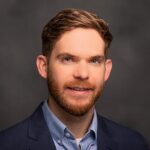
Chris Wade is a former graduate student in the College of Natural Resources at NC State in the RES-Lab and received a master’s degree in forestry and natural resource economics from Virginia Tech. He is currently an senior natural resource economist and manager at RTI international. His research focuses on applying dynamic, spatially explicit modeling frameworks to assess tradeoffs in coupled human-environmental systems. His research covers an array of topics including forestry, land use, climate change mitigation, groundwater management, and coastal resources. Chris was a member of the 2022 Young Scientist’s Summer Program at IIASA and a STEPS Scholar at NC State.
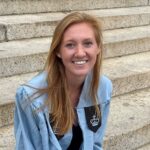
Alexandra Hays completed a Master’s in Natural Resources in 2023. Her thesis work focused on drivers of food security in California’s Central Valley — part of an NSF-funded project on food-energy-water nexus sustainability. She received her B.A. in economics and sustainable development from Columbia University in 2021. She is broadly interested in examining the socioeconomic implications of various policy pathways and environmental change on historically marginalized communities. Allie was a member of the inaugural Climate Leaders Program where she interned at RTI International, was a member of the 2021 National Champion Women’s Cross-Country team at NC State. Allie is currently an Energy Trading Analyst at Brookfield Renewable U.S.